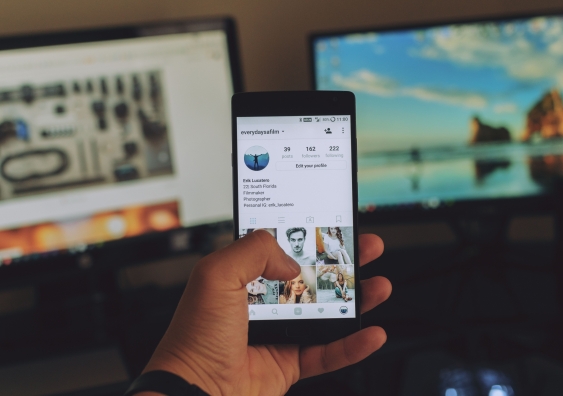Know your rights and stay on top of evolving terms of service when using social media, says Professor Kathy Bowrey from UNSW Law.

When people upload their images online, their use is regulated by the social media’s contract terms. Image: Unsplash
‘What’s on your mind?’ asks Facebook. You upload a photo of yourself posing on a secluded beach in the Greek Islands and enter the caption, ‘Just another day in paradise’. You hit ‘post’. Voila! Your content is now available for all your friends and family to see. Depending on your privacy settings, your content may also be available to strangers and people who aren’t even on Facebook.
Did you know that while technically you retain ownership of that content, you have also allowed Facebook to store, copy and share it with others, such as service providers? In other words, you have now lost exclusive control over the use of that content.
Facebook isn’t the only social media platform to implement these kinds of conditions. Professor Bowrey says other popular social media networks have very similar terms of service that you agree to when you sign up.
“When people upload their images online, their use is regulated by the social media’s contract terms. This includes giving Facebook, Twitter, Instagram and Tinder the right to use, reuse and sublicense use of the images. The platform also collects images and data for their own marketing purposes, like promoting sponsored advertising.
Similarly, YouTube’s terms of service state that you retain all of your ownership rights to your content. However, by submitting it, you grant the platform a worldwide, non-exclusive, royalty-free, sublicensable and transferable licence. They can use it, reproduce it, distribute it, prepare derivative works of it, display it, publish it, adapt it, and make your content available online or electronically transmit it in any media format and through any media channel.
“Platforms also encourage other users to share and reshare images online. This includes sharing images you post that you might own copyright to and ones that you don’t own the rights to. The platform might also share the images to third parties who use them. For example, Tinder’s terms of service require you to consent to them accessing and using whatever you post on Facebook,” explains Professor Bowrey.
Professor Bowrey says professional network platform LinkedIn is a bit more limited in what it does without your consent, possibly because it seeks to target a professional audience.
“But the general terms are all about allowing for unimpeded circulation of what you post, not limiting what kind of audience there is for it,” says Professor Bowrey.
Once you’ve shared content, there’s no taking it back
Does deleting your content remove the social media platform’s right to continue to use it? Unfortunately, no. Deleting the content won’t remove the platform’s right to continue using it, particularly if it has been shared with others, and they haven’t deleted it. There is no taking it back once you’ve shared it.
“The licence terms aren’t able to be revoked, and once you agree to them you can’t stop the ongoing circulation and reuse of the content by others, even after you delete your own account. This means that an intimate photo shared with or without your permission, or a party photo you don’t want an employer to see, can be difficult to call back. Copyright law won’t help you here, because the platform’s terms of service is designed to make it hard to blame them for what users do online. They try to make the party who posts the content responsible, while the images continue to have an online life of their own,” explains Professor Bowrey.
The professor says the commercial logic behind social media platforms’ terms of service is also very interesting, as it’s not just about selling data to third parties but changing what is commodified and how we experience culture.
“This kind of licence is what makes things like a life as a social influencer possible. You might start out with a hobby, posting your outfit of the day, and as a result of your personality and cuteness, turn a blog into a full-time business if you can keep up a following and be on trend.”
New challenges for social media platforms
“Culture today is not really just about selling things – books, art, music, film – but about selling lifestyles and identities that are fabrications for online consumption. AI-generated social influencers and deepfakes are a natural progression of this dynamic,” says Professor Bowrey.
Deepfake is AI-based technology that allows individuals to produce or alter content such as video or audio, generating realistic visual or audio that never actually took place. The ability to distort reality isn’t a new concept, particularly with social media platforms attempting to weed out ‘fake news’. However, as machine learning techniques improve, it will potentially become harder for social media algorithms to detect the more realistic and convincing deepfakes.
Professor Bowrey says social media platforms grow by feeding curiosity and regularly rewarding bad behaviour, with common courtesy taking a back seat.
“As a mental health initiative and addressing concerns about a lack of authenticity and competitiveness in online culture, some platforms are experimenting with removing ‘likes’ to see what happens. Of course, the platform will still have its own data about who is sharing what, but it won’t be so visible to users. It’s also a way of reinventing interest in the platforms as their audiences age and there is more competition from other apps.”








